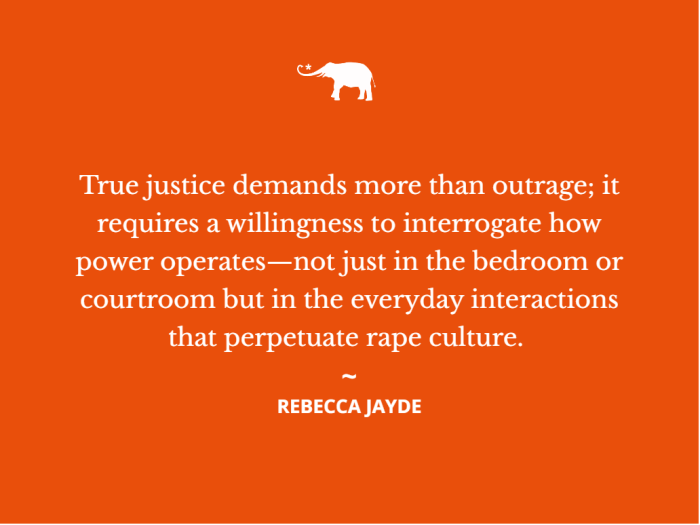|
|
18 - The magic, spiritual number. ONE - The ONENESS that is ALL. All there ever was; All there ever is; All there will ever BE! (8) INFINITY - The ETERNAL PRESENT Moment. Eternity; Forever! That which was never born; never dies!
|
I believe God wants you to know ... ... that the method
of the enterprising is to plan with audacity and execute with
vigor. Christian Nevell
Bovee said that, and it is a valuable observation. As we
experience this holiday season, and you begin thinking
about the New Year ahead, plan with audacity. And as you move into
the New Year, execute your plans with vigor.
There is excitement in life -- but you have to put it
there. Incidentally, you
may begin executing with vigor right now. Why wait? |
|
|
|
|
View this post on Instagram
{*Did you know you can write on Elephant? Here’s how—big changes: How to Write & Make Money or at least Be of Benefit on Elephant. ~ Waylon}
Instead of peacefully reflecting on the year’s end, I usually find myself exhausted as Christmas approaches.
Though Christmas day has passed, I’m still putting away presents and figuring out what to do with the excessive toys that my son has received this year. We’ve had a blast, but the truth is we’re burnt out.
Christmas celebrations are overwhelming, and just when you think you can finally slow down, New Year’s Eve shows up.
As we strive for breaks from the hustle and bustle of the holiday season, we tend to lose ourselves in the process and neglect our needs. Because this season is all about giving, it’s easy to feel that we’re being pulled in multiple directions.
We’re supposed to be helpful, generous, and charitable, but we almost always end up feeling drained. By January, we might feel depleted, and instead of resuming the life we’ve had before December, we end up looking for ways to recover.
The feeling of burnout that creeps in around the holidays has a lot to do with the mental load we experience. But we mostly feel overwhelmed because we don’t spend enough time doing the things we love and reconnecting with ourselves.
When I took the dogs out for a walk the day before Christmas, I realized how much I needed that breath of fresh air. I didn’t think about the presents I needed to get, the yule log I had to pick up, or the food I had to prepare; I just played with my dogs and enjoyed the walk.
For the next few days (especially on Christmas Day), I made sure to go for frequent, short walks, spend a few (more) minutes in the shower, take a nap, and do the things that empower me—like reading a book and meditating. When I had replenished my energy, I was capable of being more present and kind.
If we want to survive the holidays, we need to take breaks—genuine breaks. No social media, no TV, no distractions…just us and what makes us feel whole again. When we take good care of ourselves, we can take care of others.
So if you’re feeling weary, make a little time for yourself today. Go outside, slow down, take a walk, have your favorite cup of tea (or coffee), read, bake a cake, exercise, listen to music, or simply prioritize rest.
More importantly, remember that this, too, shall pass. You will come back to yourself before you know it.
~

Elyane S. Youssef is an extraterrestrial who was given birth by Earthlings. While living on planet Earth, she fell in love with art, books, nature, writing, photography, trave… Read full bio
author: Elyane Youssef
Image: miraalou/Instagram
“I think of the unrecognized victims whose stories often remain in the shadows. I want you to know that we share the same fight.
…..I wanted, by opening the doors of this trial on September 2, that society could take hold of the debates that took place there.
I have never regretted this decision. I now have confidence in our ability to collectively seize a future in which each woman and man can live in harmony with respect and mutual understanding. I thank you.”
And with that, Gisèle Pélicot left her last word on one of the largest mass rape trials in the world’s history. Much has been written about Gisèle and the atrocities inflicted upon her. Dominique Pélicot, a 71-year-old Frenchman, has been found guilty after being on trial in Avignon for repeatedly drugging his wife, Gisèle, and raping her as she slept. He was also convicted of inviting 50 other men into their home to do the same, all of whom were found guilty, though police believe there were many others who could not be identified.
Much more will, and must, be written—by voices more eloquent and expert than mine. Yet, sometimes all we have is a small pebble to throw into the stagnant waters of injustice, and I feel compelled to cast mine in.
Patriarchy is not upheld solely by the actions of “bad men.” It thrives in the quiet complicity of everyday power dynamics, in the societal conditioning that teaches women to stay silent and men to look away. It creates a world where trust in men is fragile, and speaking out feels riskier than enduring harm. The insidious narrative of “not all men” compounds this harm. It allows men to absolve themselves of responsibility, believing that as long as they are not overtly abusive, they play no role in dismantling the system that perpetuates inequality. But patriarchy is a collective failure, reinforced not just by violence but by the silence and inaction of those who could demand better.
For women like Gisèle, brave enough to speak out and endure the harsh scrutiny of a rape trial, patriarchy shifts the burden of proof squarely onto their shoulders.
Even when confronted with overwhelming evidence, not a single man involved chose to take responsibility or plead guilty—such was their arrogance. Instead, many resorted to absurd defenses, including the claim of “accidental rape.” The fact that such a defense could even be entertained speaks volumes about the moral and cultural failure of a society that struggles to hold men accountable. This isn’t just an isolated incident; it’s a stark reminder that rape culture isn’t an anomaly but a pervasive reality, fuelled by the everyday excuses, denials, and justifications that protect perpetrators and silence survivors.
The media’s repeated characterization of these men as “ordinary”—as if it were almost unbelievable that such actions could be committed by men like them—exposes the dangerous myth of the “monster” and the deeply ingrained refusal to confront the reality of male violence.

This account does not have permission to comment on Elephant Journal.
Contact support with questions.
Gisèle’s bravery shines a light on these deeply entrenched norms, but systemic change cannot rest on the shoulders of victims alone. While the loudest support for Gisèle came from women, too many men still fail to listen, believe, or reflect on their role in the dynamics that enable such harm. The “not all men” mantra allows them to cling to passivity, ignoring how their actions—or inactions— perpetuate inequality and leave women on the frontlines fighting alone. Women like Gisèle.
Without collective reflection and transformation, Gisèle’s courage risks becoming a fleeting symbol rather than a force for lasting change.
True justice demands more than outrage; it requires a willingness to interrogate how power operates—not just in the bedroom or courtroom but in the everyday interactions that perpetuate rape culture. It requires men to move beyond passive disapproval and murmurs of empathy to their partners behind closed doors and take active responsibility for dismantling the systems that protect them at the expense of women.
Is it too much to imagine a world where a grandmother can retire and live in obscurity in the quiet beauty of the French countryside, singing in the choir she loves, sleeping safely in her bed at night, untouched by horrors most of us struggle to even comprehend? This was the life Gisèle thought she had—the life she deserved. Yet, her story asks us: Is a world free from violence against women truly so hard for men to envision, to fight for, to create?
This work is not optional—it is a moral imperative for men and women alike.
Gisèle intentionally stepped out of obscurity to ensure her voice would challenge a broken system and let those going through hell know that they weren’t alone. “Shame changes sides,” she said. Her legacy. May her story never fade into history, forgotten. Let the ripples of her courage reach far and wide, disrupting entrenched systems and igniting transformation.
I wish it were as simple as saying “never again.” But too many of us know the truth: there will be an again.
And again.
And again.
Until we refuse to look away, until we stand together to make such horrors impossible. The work is slow, relentless—dismantling oppression piece by piece, stone by stone, until all that remains is the foundation of a world where justice is not the exception but the rule. We have to keep believing that each pebble we throw into the stagnant pond stirs up the scum that has settled at the bottom for too long, sending ripples outward—until, together, we turn the tide.
~
This account does not have permission to comment on Elephant Journal.
Contact support with questions.

Rebecca is deeply passionate about people and the power of their stories to inspire change. With an extensive academic and professional background in communication, education,… Read full bio
This account does not have permission to comment on Elephant Journal.
Contact support with questions.